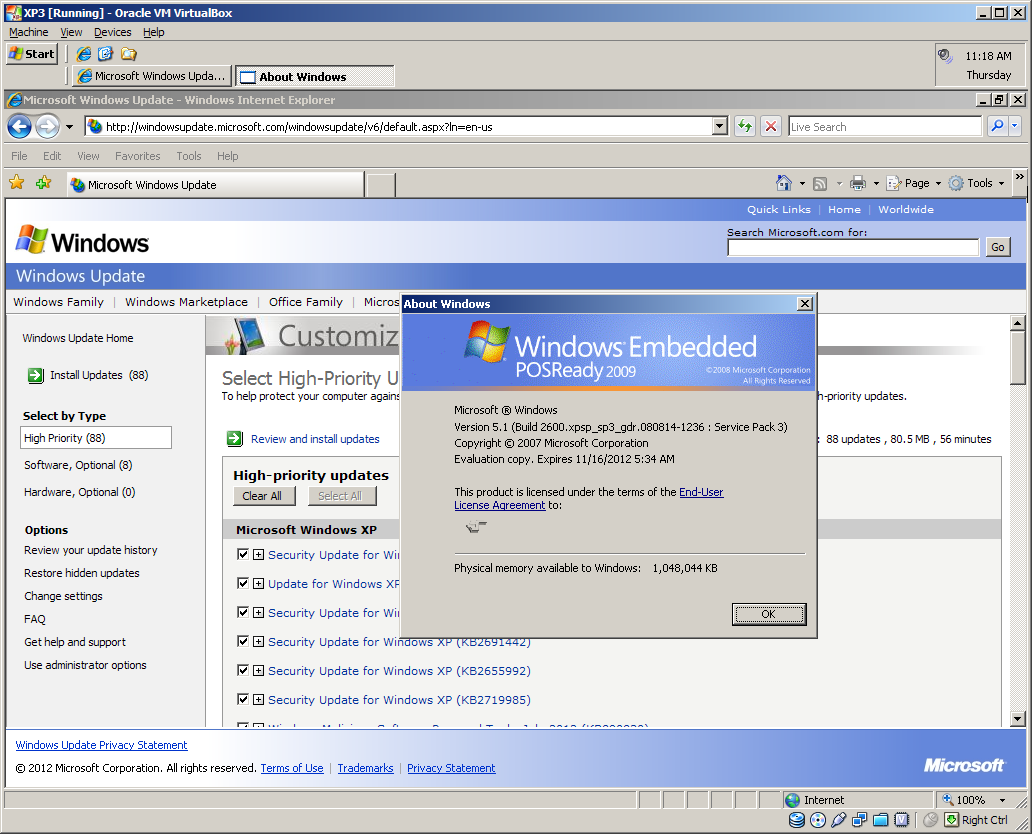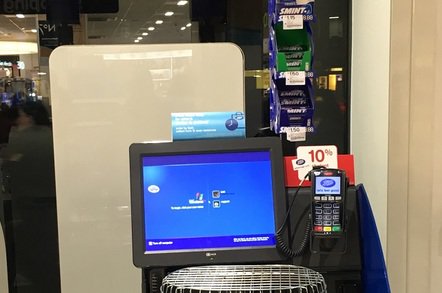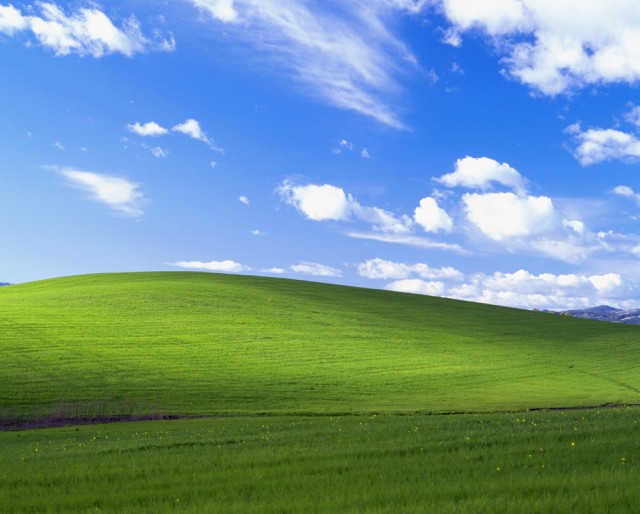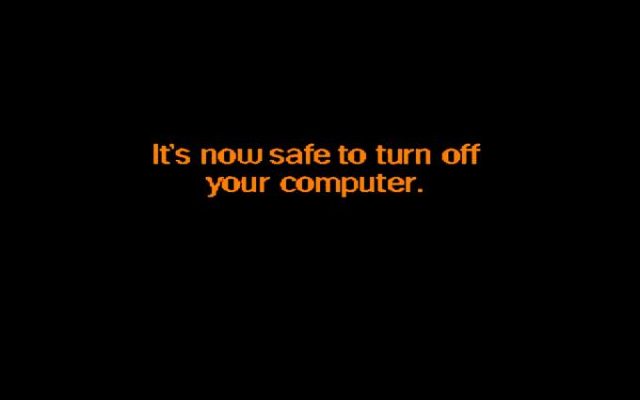Windows XP is officially dead, now finally

Everyone liked the search dog from XP, right?
Most users buried Windows XP more than 5 years ago. But loyal fans and hostages of the ecosystem together still continued to use this operating system, going to various tricks to maintain its vegetative state. But as time went on, Windows XP finally reached the end of the path, as its last supported version, POSReady 2009, is no longer officially supported.
Point of no return is passed.
')

Screenshot neowin.net .
Windows Embedded POSReady 2009, which, as its name implies, is intended primarily for launching applications that attract customers' attention with exclamations like “Free Cash!” Finally completely lost its official support in April 2019, which marked the absolute end of an impressive life for such a massive family of operating systems.
British retailer Boots demonstrates the old Windows XP login screen on a self-service terminal in its Islington store:

Photos of a point of sale with Windows POSready 2009 theregister.co.uk
Detected by the Register reader, the POS terminal happily displays the old XP login page, although employees put an inverted basket in front of the machine so that customers do not touch it.
Windows XP is no longer supported. However, some publications were delayed for years after the official date of death. Embedded Standard 2009 has finally been disabled in January, and extended support for the implementation in the form of Embedded POSReady 2009 ended on April 9th.
A few days before, on April 5, 2019, Microsoft released the latest update for the “last of the Mohicans” with the number KB4487990, which fixed time zones for Sao Tome and Principe and Kazakhstan Kyzylorda.
After that, there was a dead silence. The corporation turned off all life support systems. The patient is dead and will never leave the coma.
Unfortunately, global support for most versions of Windows XP ended in 2014, amid loud screams and teeth grinding, when companies realized that they suddenly had to move somewhere from their usual platform. XP was available for installation since 2001, but due to the fact that many people missed the disastrous Vista and set the trend of refusing to update, a significant number of workstations with XP remained alive to this day.
Fortunately, Windows 7 was so good that most people could just start using it. But not all. Windows XP was the first OS to be seriously affected by a problem called “too good to quit,” because of which end users refused to update long enough after the OS went through its golden years.
This was partly a reaction to Windows Vista and partly the result of XP’s unusually long stay in flagship status. When Bill Gates decided to focus on security in Windows XP with Service Pack 2 (SP2), Microsoft did not rebrand or release a new version of the OS, despite a number of significant changes. Before XP, Microsoft pretty quickly sorted out its consumer operating systems: in 1992, Windows 3.1, then Windows 95, 98, and Windows 2k and ME in 2000. XP’s term of office turned out to be much longer — it was Microsoft’s mainstream OS for more than five years (2001–2006) and remained popular on the market until the release of Windows 7 in 2009.
This longevity can sometimes be just annoying. Appearing on the last days of the popularity of floppy disks, Windows XP immediately suffered from one of the inherent shortcomings - the inability to manually load disk controller drivers from anything other than a floppy disk, which was already very annoying at the end of the life of this OS when using controllers with AHCI or Raid (Yes, it was possible to embed drivers into new copies of Windows XP written to disk. However, it was rather annoying to constantly write new copies of Windows XP.)
In the era of XP, Microsoft learned some lessons about how difficult it is to get people to perezzhatsya from the version of the OS, which they loved and would like to continue to use, the new version. Most likely, it was this experience that caused the approach to Windows 10 as an eternal, constantly updated product - although Microsoft also took several steps to weaken this policy and return additional control to users.
Some large users, such as the British government, supported the flame of life in a dying Windows XP and after 2014, paying significant sums in Microsoft pounds for personal access to updates, while others found that “masking” the aging operating system of their computers under "POSReady" with the help of certain changes in the registry will allow you to receive security updates for quite some time.
Despite the fact that obsolete (from a security point of view) computers with Windows XP remained fertile ground for the spread of viruses, in some cases, the machines running this OS actually disrupted the plans of intruders. At least this was the case during one of the recent WannaCry malware outbreaks in 2017, when it was discovered that computers with XP dropped too often in the BSOD and " pretended to be dead ", which prevented the spread of the virus, whose exploit did not work "as it should ".
"Unpatched" computers with Windows 7 became the main target for hackers, who were especially embarrassed by Markus Hutchins , who found the global "switch" of the WannaCry epidemic.
It is worth remembering that for Windows 7, Microsoft has set the date of execution in 2020, which is just around the corner.
While Microsoft happily offers to upgrade to Windows 10 or Windows 10 Pro for POSReady 2009 computers, the hardware that users have is unlikely to benefit from this, because of the increased system requirements and it is subject to replacement.

Bliss, original photo by Chuck O'Rear
Well, since there will be no more updates, it is time to gather around the fire with flaming licensing agreements, join hands and sing commemorative songs, looking at the wallpaper with
serene green fields.

Image extremetech.com
And then put Linux or ReactOS.
PS Anyone who still refuses to believe in the death of Windows XP will probably be interested to re-read the topic published on December 27, 2018 under the heading " Why does Windows XP still drive or 2019 in 2019? ". However, it is obvious that now the tricks described in this material will turn more and more difficult.
Source: https://habr.com/ru/post/449814/
All Articles